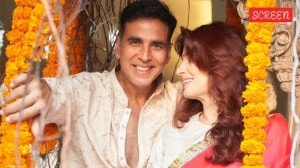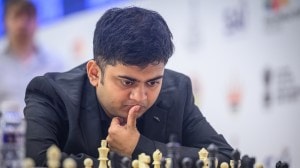Why SGPC elections are not for all,what info in court could have meant
Vipin Pubby explains the voting rights controversy that threatened to delay the polls.
Who are allowed to vote and who arent?
Under a 2003 notification,only keshdhari Sikhs have the right to vote in the Shiromani Gurdwara Parbandhak Committee elections. That leaves out sehajdhari Sikhs.
How are sehajdhari and keshdhari Sikhs different?
Definitions and opinions differ. Keshdhari Sikhs are required to strictly follow all the tenets of Sikhism like not trimming their hair,keeping their faith solely in the Guru Granth Sahib and the ten Sikh Gurus,shunning alcohol or tobacco and eating halal meat. Sehajdhari Sikhs include those who might not have been born Sikhs but who started believing in the gurus and the Guru Granth Sahib and who are in the process (Sehaj) of becoming baptised Sikhs. Sikhs who cut their hair are called patit (apostate). The Sikh clergy insists that there is a difference between sehajdhari and patit Sikhs but some groups claim there is none.
What has ignited the controversy now?
The Punjab and Haryana High Court,hearing a petition seeking voting rights for sehajdhari Sikhs,was informed that the Centre had withdrawn the 2003 notification. Subsequently,however,the Centre clarified that it had not withdrawn it.
Who provided the initial information?
Senior advocate Harbhagwan Singh,who was nominated the Centres counsel only a day earlier,told the court that he had been informed about the withdrawal by a caller who claimed to be speaking from the Law Ministry. Consequently,the court declared that the petition had become infructuous.
What would have been the implication of such a decision?
The immediate result would have been deferring or cancelling the elections scheduled for September 18 because it would have entailed enrolling sehajdhari Sikhs earlier left out. This would have taken time. The supposed withdrawal led to a sharp reaction from the SGPC and the Akalis,who declared their intention to go for mass protests accusing the Centre of again discriminating among the Sikhs and interfering in their religious issues.
What did the Centre clarify?
Union Home Minister P Chidambaram declared in a statement in Parliament the next day that there was no move to withdraw the notification and that the Centre had not authorised the counsel to inform the court. His statement implied that there was no change in the election schedule.
Where do various parties and groups stand on this issue?
The SGPC,the Sant Samaj and even the Shiromani Akali Dal claim the expression sehajdhari Sikhs does not exist; it finds no place in the Sikh granths or the rehat maryada. The Congress and several other parties and groups are in favour of giving voting rights to sehajdharis. They describe the notification debarring sehajdharis as illegal and discriminatory. It was a petition by some of these groups that was being heard in the High Court.
Have the sehajdhari Sikhs ever voted?
The sehajdharis were given the right to vote under the Sikh Gurdwaras Act,1925,and they participated in the SGPC elections till 2004. However,questions were raised over their participation in almost every election with the clergy and the Akalis insisting on voting rights only to those who followed the Sikh rehat maryada. The general house of the SGPC passed a formal resolution in 2003 asking for defranchising sehajdhari Sikhs from the SGPC elections. The resolution was forwarded to the then coalition government run by the Shiromani Akali Dal and the BJP. The NDA government at the Centre subsequently issued a notification debarring sehajdhari Sikhs from voting. The notification was challenged in the High Court but the 2004 SGPC elections were held as per the Centres notification.
How does the Sikh population break up?
Exact figures are not available but going by the previous enrollment of voters,more than half the registered Sikh voters were sehajdharis. As per unofficial estimates,the proportion of Sikhs who are not strictly following the norms laid out in rehat maryada could be as high as 80 per cent.
Why are the stakes so high for the SAD?
With the Assembly elections due in February,the ruling SAD is touting the SGPC elections as a semi-final. However,the Congress,which is not contesting the elections to the religious body but is unofficially supporting candidates,thinks that the issues involved in the SGPC elections and the Assembly elections are different and the real test would be the latter.



- 01
- 02
- 03
- 04
- 05




























